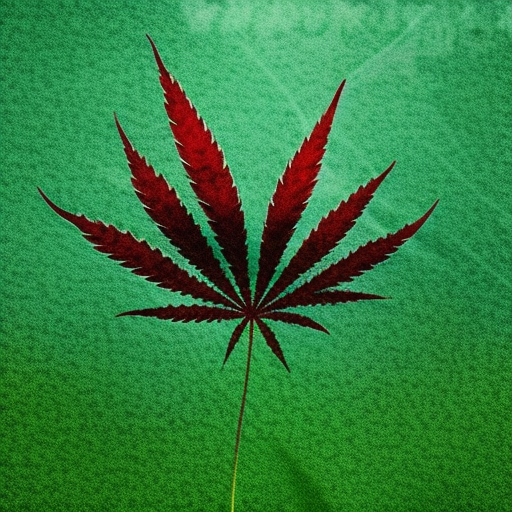
Yo, what’s good? My name’s Dan and I’m here to talk to you about Rastafarianism and the ganja. When you hear the word “Rasta,” you probably think of weed, am I right? It’s like peanut butter and jelly, they just go together. But let me ask you this: is it really true that Rastafarianism and marijuana are all tied up together?
There are a lot of stereotypes out there about weed, and some of them have become so ingrained in our culture that we don’t even question them anymore. One of these is the idea that Rastafarianism is all about getting high. Today, we’re going to dig into the history of this religion and see what’s what.
So, if you’re interested in learning more about the connection between Rastafarianism and marijuana, stick with me!
Rastafarianism: What’s the Deal?
Now, I know some of y’all might not be familiar with Rastafarianism, so let me break it down for you. This is a religion that’s based on Jamaican culture and has only been around since the 1930s. Even though it’s a young religion, it’s become pretty well-known around the world.
Rastafarianism was born in the 1930s when Haile Selassie I became king of Ethiopia. Rastafarians believe that Selassie is God (or Jah, as they call him) and that he’s going to come back to Africa one day to save the black community from oppression.
Some big names in popular culture have helped spread the word about Rastafarianism, like Bob Marley and Bunny Wailer. Their music has brought this religion to a wider audience, making it more recognizable than ever before.
When you compare Rastafarianism to other religions like Christianity, there are some similarities. But even so, there are only about a million Rastafarians in the world today.
Rastafarians and Religion
There’s no denying that Rastafarianism has been controversial in the past. Some people think it’s just an excuse to smoke weed and be lazy, while others argue that it’s a movement for the rights of African people.
Over time, it’s become more about spirituality, nature, and getting closer to God (Jah). Rastafarians believe in living simply and rejecting materialism and consumerism. They’re all about spiritual guidance instead of following specific rules.
Unfortunately, this has led to some negative stereotypes about the religion. People think Rastafarians are dirty, drug-using hippies who don’t want to work. But that’s simply not true.
Rastafarians and Marijuana: What’s the Real Story?
So, let’s get to the point: what’s the deal with Rastafarians and weed? There are a lot of rumors out there about how marijuana became part of Rastafarian culture in the first place.
Some people say it was a way for black people to rebel against the establishment and find freedom. Others argue that it’s purely religious – Rastafarians believe that marijuana is the Tree of Life mentioned in the Bible.
No one knows for sure how this all started, but one thing is clear: Rastafarians have been using marijuana in their spiritual gatherings (known as Reasoning sessions) since the beginning of the religion. They believe that smoking weed helps them get closer to God and enter a heightened spiritual state.
But here’s something you might not know: most Rastafarians don’t smoke weed outside of these religious gatherings. For them, marijuana is a Holy Herb that should only be used for spiritual purposes.
Final Thoughts: What’s the Deal with Rastafarianism and Marijuana?
So, to sum it up: yes, marijuana is definitely a big part of Rastafarianism. Rastafarians believe that weed is a gift from God that can help them reach a higher spiritual plane.
But at the end of the day, weed isn’t the only thing that defines Rastafarian culture. Despite what some people might think, Rastafarians aren’t lazy potheads who don’t want to work or be a part of society.
What do you think about all this? Let me know in the comments!





Yo, I feel like puffin on that herb do bring y’all closer to the vibes and the spirit. It ain’t just ’bout the smoke, it’s ’bout connectin with the world and the higher power. Rasta life all about unity and love, and that Mary Jane help keep it real.
Yo dis blog real deep, for real. Rasta life all about vibes and connection, and herb be part of dat. It aint just smoke, it a way to elevate spirit and find truth. Respect to da culture and da roots, ya feel me?
Yo, for real, it ain’t just about the herb, it’s about connectin’ to spirit and livin’ that righteous life. Mary Jane bring us closer to the vibes and wisdom of Rasta culture, you feel me?